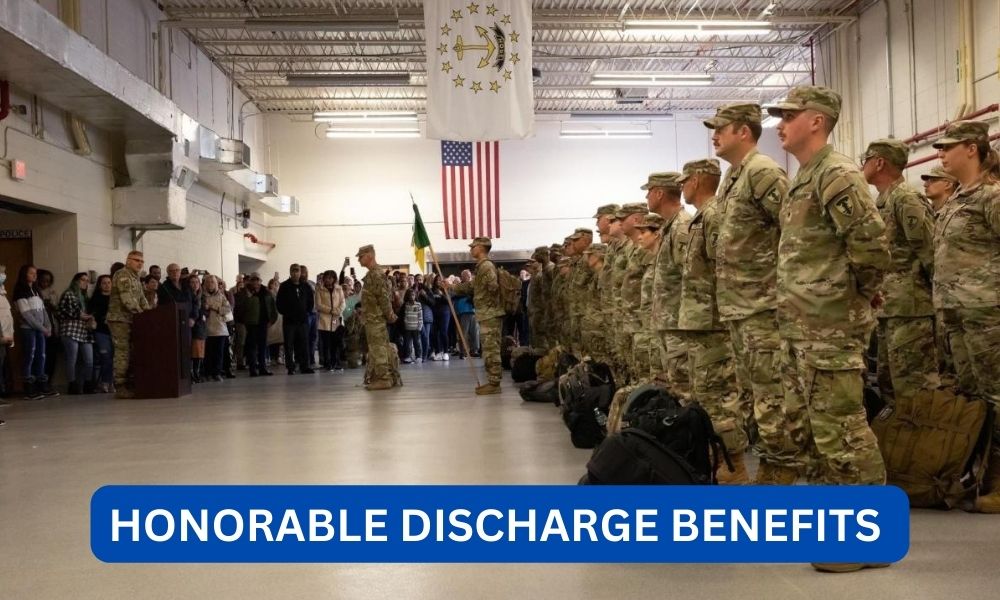When a member of the military is discharged from their service, it is typically seen as a moment of pride and accomplishment. However, not all discharges are created equal. While some are given an honorable discharge, others may receive a less desirable discharge known as an Other Than Honorable (OTH) discharge. This type of discharge can have serious consequences for the individual, both in their personal and professional lives. In this article, we will explore the benefits that come with an OTH discharge and the potential challenges that may arise.
Contents
What is an Other Than Honorable Discharge?
An Other Than Honorable discharge is a type of administrative discharge that is given to a service member who has engaged in misconduct or has failed to meet the standards of conduct and performance expected by the military. This type of discharge is considered less severe than a dishonorable discharge, but more severe than a general discharge under honorable conditions.
There are several reasons why a service member may receive an OTH discharge, including drug or alcohol abuse, insubordination, repeated misconduct, or failure to meet physical or mental standards. It is important to note that an OTH discharge is not a criminal conviction, but it can have similar consequences.
Read:How long are unemployment benefits?Benefits of an Other Than Honorable Discharge
While an OTH discharge may seem like a negative outcome, there are still some benefits that come with it. These benefits may vary depending on the individual’s specific circumstances and the reason for their discharge. Here are some of the potential benefits of an OTH discharge:
- Eligibility for VA Benefits: One of the most significant benefits of an OTH discharge is that the individual may still be eligible for some VA benefits. These benefits may include healthcare, disability compensation, and education benefits. However, the individual’s eligibility for these benefits will depend on the specific circumstances of their discharge and the length of their service.
- Reenlistment Eligibility: In some cases, individuals with an OTH discharge may still be eligible to reenlist in the military. However, this will depend on the reason for their discharge and the needs of the military at the time of their reenlistment.
- GI Bill Benefits: While individuals with an OTH discharge may not be eligible for the Post-9/11 GI Bill, they may still be eligible for the Montgomery GI Bill. This benefit provides financial assistance for education and training to eligible veterans.
- Access to VA Loans: Individuals with an OTH discharge may still be eligible for VA home loans. These loans offer competitive interest rates and do not require a down payment, making it easier for veterans to become homeowners.
Challenges of an Other Than Honorable Discharge
While there are some benefits that come with an OTH discharge, there are also significant challenges that individuals may face. These challenges can have a significant impact on their personal and professional lives. Here are some of the potential challenges of an OTH discharge:
Read:How long does it take to start getting survivor benefits- Limited Job Opportunities: One of the most significant challenges of an OTH discharge is the limited job opportunities that may be available. Many employers may view an OTH discharge as a red flag and may be hesitant to hire someone with this type of discharge on their record.
- Difficulty Obtaining Security Clearances: Individuals with an OTH discharge may also face challenges in obtaining security clearances. Many government and private sector jobs require security clearances, and an OTH discharge may disqualify an individual from obtaining one.
- Stigma and Discrimination: Unfortunately, there is still a stigma attached to an OTH discharge, and individuals may face discrimination because of it. This can make it challenging to reintegrate into civilian life and can have a significant impact on an individual’s mental health.
- Loss of Military Benefits: While individuals with an OTH discharge may still be eligible for some VA benefits, they will lose access to certain benefits, such as the Post-9/11 GI Bill and military retirement benefits.
Case Study: The Impact of an Other Than Honorable Discharge
To better understand the consequences of an OTH discharge, let’s take a look at a real-life example. In 2017, the Department of Defense released a report that found that over 13,000 service members had been discharged with an OTH discharge between 2011 and 2015. One of these service members was Army veteran, Joe Smith (name changed for privacy).
Read:how long do unemployment benefits lastJoe joined the Army in 2008 and served for six years. During his service, he received several awards and commendations for his outstanding performance. However, in 2014, Joe was involved in an altercation with a fellow service member while off-duty. As a result, he received an OTH discharge for misconduct.
After his discharge, Joe struggled to find employment. Despite his impressive military record, many employers were hesitant to hire someone with an OTH discharge on their record. Joe also faced challenges in obtaining a security clearance, which limited his job opportunities even further.
Joe also lost access to certain military benefits, such as the Post-9/11 GI Bill, which he had planned to use to further his education. He also faced discrimination and stigma because of his discharge, which took a toll on his mental health.
Fortunately, Joe was able to receive some VA benefits, including healthcare and disability compensation. However, the challenges he faced because of his OTH discharge had a significant impact on his life.
Conclusion:
An Other Than Honorable discharge may not be as severe as a dishonorable discharge, but it can still have significant consequences for the individual. While there are some benefits that come with an OTH discharge, such as eligibility for VA benefits and reenlistment, there are also significant challenges, including limited job opportunities and stigma. It is essential for service members to understand the potential consequences of an OTH discharge and to seek support and resources to help them navigate the challenges they may face.
If you or someone you know is facing an OTH discharge, it is crucial to seek guidance from a military legal assistance attorney or a veterans’ service organization. These resources can provide valuable information and support to help individuals understand their rights and options. With the right support and resources, individuals with an OTH discharge can still lead successful and fulfilling lives after their military service.









